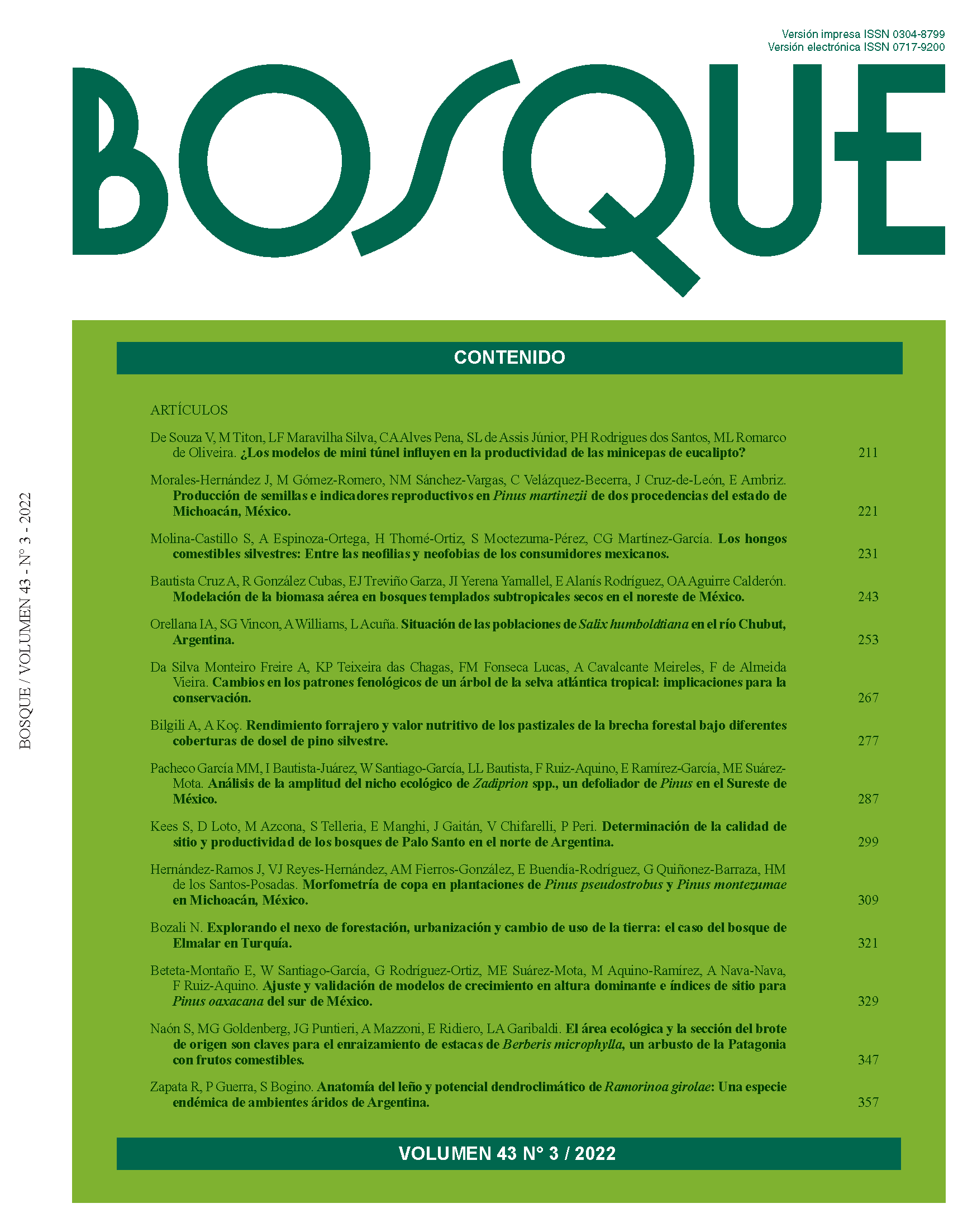¿Los modelos de mini túnel influyen en la productividad de las minicepas de eucalipto?
Main Article Content
Abstract
Mini-cutting is the most common commercially used clonal propagation method in Brazil. However, several environmental interferences can impact this process, hindering the production of propagules. Mini-tunnel have been used to overcome these difficulties, allowing for an increase in the productivity of mini-stumps and the rooting of mini-cuttings. This study aimed to evaluate the effect of mini-tunnel models on the mini-stump productivity of two hybrid eucalyptus clones over two seasons. The study was conducted in the seedling nursery of a forestry company located in Alto Vale do Jequitinhonha, Minas Gerais, Brazil. Three models of the mini-tunnel were used: mini-tunnel 35 cm, 55 cm, 55 cm tubular, and without cover (control) over two seasons (cold and hot). The total and effective productivity of mini-cuttings were evaluated and the levels of chlorophyll A and B, total chlorophyll, height, leaf area, and dry matter of the mini-cuttings were determined. Together, season and use of the mini-tunnel influenced the productivity of the mini-cuttings of both clones. Use of the mini-tunnel resulted in high productivity, especially in the cold period. Mini-cuttings produced during the hot season showed greater growth, dry matter, and leaf area than those collected during the cold season. The use of mini-tunnels is an effective method to increase the productivity of clonal eucalyptus mini-gardens, as shown here by its overall positive influence on mini-cuttings of both genotypes.

